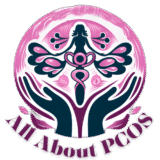Introduction Natural PCOS Management Strategies for Improved Health
Understanding PCOS
Polycystic Ovary Syndrome (PCOS) is a common health condition, affecting 1 in 10 women of childbearing age. It’s a complex disorder characterized by hormonal imbalances and metabolic issues. These imbalances can lead to a range of symptoms that impact women’s overall health and quality of life.
Common Symptoms of PCOS
Women with PCOS may experience a variety of symptoms, including irregular menstrual cycles, weight gain, acne, thinning hair, and fertility issues. These symptoms are not only physically challenging but can also lead to emotional and psychological stress.
My Personal Journey with PCOS
Having been diagnosed with PCOS over 20 years ago, I embarked on a journey filled with trials and errors. Navigating through the myriad of treatments and advice, I gradually uncovered natural methods that genuinely helped in alleviating my symptoms. My experience taught me the importance of understanding my body and the impact of lifestyle choices on my health.
Sharing Natural Remedies
Through years of research and personal experimentation, I have discovered several natural ways to manage PCOS symptoms effectively. These methods are not quick fixes but rather sustainable lifestyle changes that can significantly improve one’s health. In this blog post, I want to share these insights with you, hoping to provide guidance and support to others dealing with PCOS.

The Importance of Rest
Understanding Cortisol and PCOS
Cortisol is commonly referred to as the stress hormone. It has a significant impact on women with PCOS, influencing hormonal balance and symptom severity.
Effects of High Cortisol Levels
Elevated cortisol can exacerbate PCOS symptoms, such as weight gain, irregular periods, and acne. It can disrupt the delicate hormonal balance necessary for overall health.
My Experience with Rest
Prioritizing rest and sleep became a crucial part of my PCOS management strategy. I noticed that when I focused on getting adequate rest, my cortisol levels stayed more balanced.
Benefits of Controlled Cortisol Levels
Keeping cortisol levels in check helped to regulate my menstrual cycle. It also contributed to a noticeable reduction in my PCOS symptoms.
Implementing Rest in Daily Life
Establishing a regular sleep schedule was a key step. Creating a bedtime routine that promotes relaxation and helps the body prepare for sleep was also beneficial.
Personal Insights
Through my journey, I learned the importance of rest, not just as a necessity but as a vital component of managing PCOS. Adequate rest can lead to significant improvements in managing the condition and enhancing overall well-being. I was used to staying up for long hours either studying or working, getting very minimal rest. It was not until I felt my body shutting down that I realized, I needed rest.

Exercise and PCOS
Role of Exercise in PCOS Management
Regular exercise is crucial for managing PCOS effectively. It aids in lowering insulin levels, which is often elevated in women with PCOS.
Maintaining a Healthy Weight through Exercise
Maintaining a healthy weight through exercise can also mitigate other PCOS symptoms.
Starting with Light Exercise
Beginning with 30 minutes of light exercise, such as walking or yoga, can significantly impact health. Engaging in these activities three times a week is a manageable start for many individuals.
Personal Journey with Exercise
In my experience, integrating light exercise into my routine marked a turning point in managing my PCOS. This change was not only about weight management but also about improving insulin sensitivity and hormonal balance.
The Power of Consistent Exercise
Consistent exercise became a powerful tool in my PCOS management strategy. Over time, this regular physical activity contributed to better overall health and symptom control.
Types of Beneficial Exercise
Walking, yoga, and other low-impact exercises are particularly beneficial for women with PCOS. These activities promote fitness without overly stressing the body, which can exacerbate PCOS symptoms.
Encouragement and Advice
For those struggling with PCOS, starting small with exercise can lead to substantial health improvements. Consistency and gradual progression in physical activity are key to harnessing the benefits of exercise for PCOS management.

Dietary Changes: Cutting Out Dairy
Impact of Dairy on PCOS
Dairy products have been identified to affect insulin levels and hormonal balance in some people with PCOS. They contain certain hormones and bioactive molecules that can mimic the body’s hormones, potentially worsening PCOS symptoms.
Challenges of Eliminating Dairy
For many, including myself, dairy is a staple part of the diet, making it difficult to eliminate. The love for dairy products like cheese, milk, and yogurt can make this dietary change particularly challenging.
My Journey with Dairy and PCOS
I decided to cut out dairy from my diet to see if it would impact my PCOS symptoms. The process was challenging at first, but the benefits I experienced were significant.
Benefits of Dairy-Free Diet
After removing dairy, I noticed a regularization in my menstrual cycle. My other PCOS symptoms, such as acne and weight fluctuations, also showed improvement.
How to Manage a Dairy-Free Diet
Explore dairy alternatives like almond milk, coconut yogurt, and vegan cheese. Incorporate a variety of non-dairy calcium sources to maintain nutritional balance.
Personal Reflection
Though initially tough, eliminating dairy proved to be a worthwhile decision for managing my PCOS. This change, coupled with other lifestyle adjustments, played a key role in improving my overall health and well-being.

Misconceptions About PCOS Management
The Birth Control Pill Misconception
A common belief is that birth control pills are a comprehensive solution for PCOS symptoms. While these pills can help regulate menstrual cycles and alleviate certain symptoms, they do not tackle the root causes of PCOS.
Limitations of Birth Control for PCOS
Birth control pills mainly address the symptom of menstrual irregularity. They may not effectively manage other aspects of PCOS, such as insulin resistance, weight management, and androgen levels.
Need for a Holistic Approach
Effective management of PCOS requires a broader strategy than just medication. Incorporating lifestyle and dietary changes is crucial for addressing the underlying issues of PCOS.
Components of a Holistic PCOS Management Plan
Regular physical activity to improve insulin sensitivity and weight management. Dietary adjustments, like reducing intake of processed foods and sugars, to help balance hormones. Stress management techniques to control cortisol levels, which can impact PCOS symptoms.
Personal Reflection
Understanding the limitations of birth control in managing PCOS was a turning point for me. This was the first thing that the doctors pushed on me, I quickly started to gain weight, which made my symptoms worse. It became clear that a more comprehensive approach was necessary to truly manage the condition. Embracing a holistic strategy, which included lifestyle and dietary changes, allowed me to address the underlying issues of PCOS, leading to more significant and sustainable improvements in my health.
Conclusion:
Natural Management of PCOS
Managing PCOS naturally has proven to be a viable and effective approach for many, including myself. Key lifestyle changes such as prioritizing rest, engaging in regular light exercise, and modifying the diet play a crucial role in this process.
Impact of Lifestyle Changes
Small adjustments in daily habits can lead to significant health improvements. For instance, cutting out dairy, getting adequate sleep, and maintaining regular physical activity have greatly enhanced my well-being.
Encouragement to Others
I strongly encourage those struggling with PCOS to explore these natural management methods. Implementing these changes can lead to better symptom control and overall health improvement.
Inspiration and Guidance
My journey with PCOS has been filled with learning and adaptation. I hope that sharing my experiences will inspire and guide others in their quest for better health through natural means.
Looking Forward
Managing PCOS is a continuous journey that requires patience and perseverance. With the right approach, it is possible to live a healthy and balanced life, even with PCOS. My PCOS Recipes Cookbook is a great place to start with your new journey to healthy meals. Get your copy Now!
FAQs
- What are natural methods to manage PCOS?
Natural methods include getting adequate rest, engaging in regular exercise, and making dietary changes like eliminating dairy. - How does exercise affect PCOS?
Regular exercise helps lower insulin levels and maintain a healthy weight, which are crucial in managing PCOS symptoms. - Why is cutting out dairy recommended for PCOS?
Dairy can affect insulin levels and hormonal balance, potentially worsening PCOS symptoms. Eliminating dairy may help regularize menstrual cycles and reduce other symptoms. - Can lifestyle changes really improve PCOS symptoms?
Yes, lifestyle changes like better sleep, physical activity, and dietary adjustments have been shown to significantly improve PCOS symptoms. - What are the common misconceptions about PCOS management?
A common misconception is that birth control pills alone can fix PCOS symptoms. However, a holistic approach addressing lifestyle and dietary factors is essential for effective management.

